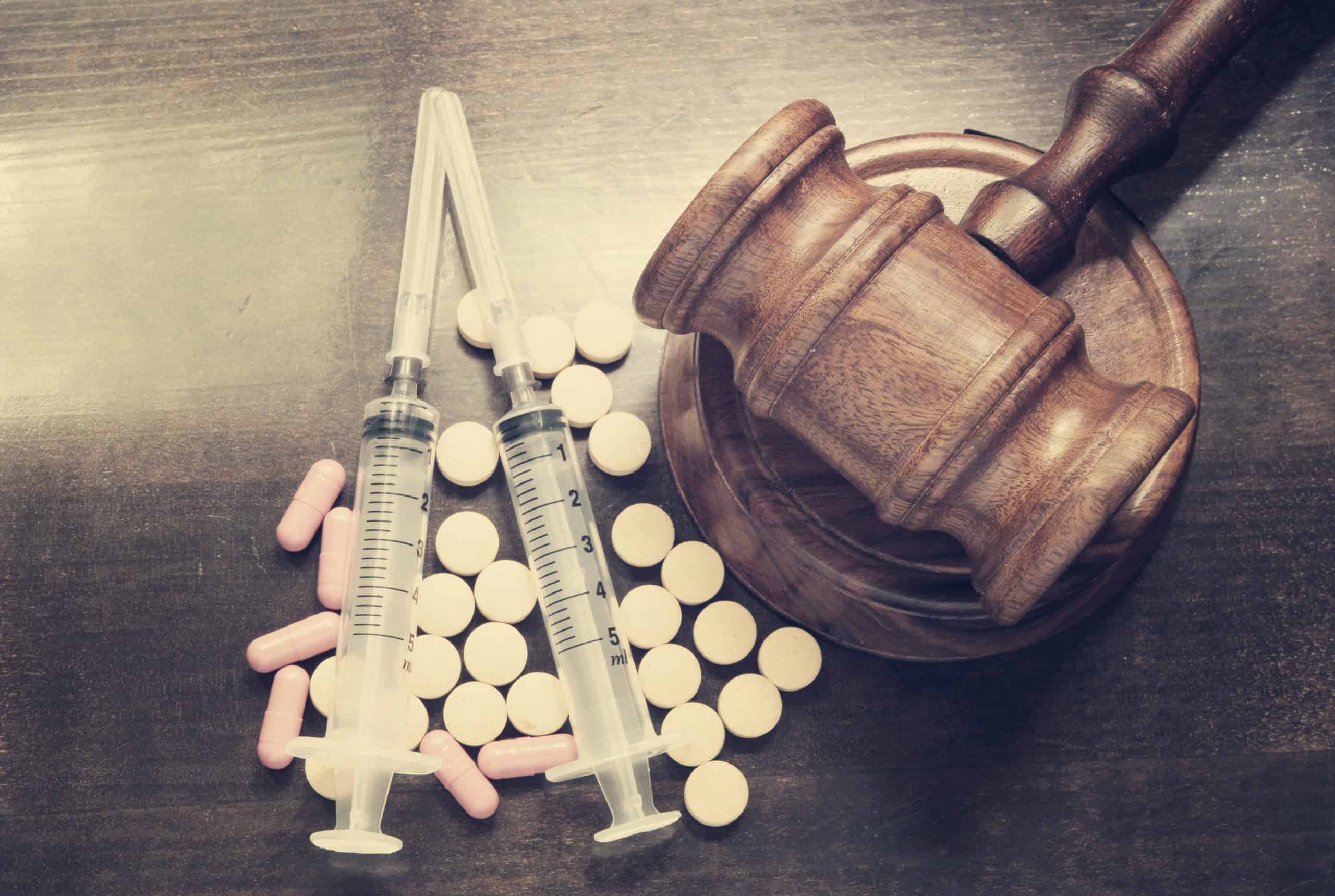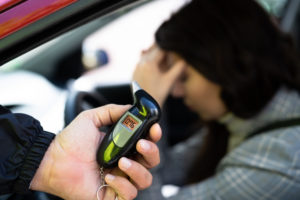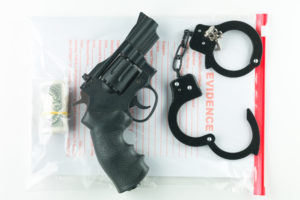
Drug crimes, including possession, manufacturing, and delivery, carry serious criminal penalties, including jail time and substantial fines. Convictions will leave a permanent mark on your record, potentially limiting your options for getting a job or renting a home. It may also prevent you from getting into the college or university of your choice or qualifying for a student loan. A drug crime lawyer in McKinney can protect your legal rights and help you fight these serious charges.
Attorney Randall Isenberg brings more than three decades of experience in the Texas legal system to every case he handles. With experience as both a felony prosecutor and state district trial judge, he can offer unique insights into how the legal system works.
Give us a call to get started with a free consultation: 214-696-9253.
Will I Go to Jail for a Drug Crime?
The chances are good that conviction for a drug crime in McKinney will put you behind bars.
Drug crimes can be a misdemeanor or felony, depending on the offense, the drug or controlled substance, the quantity involved, and your prior criminal record. In addition, if your case involved any aggravating circumstances, the prosecutor can pursue more serious charges and penalties. The following are penalties you can expect to face:
Class C Misdemeanor $500 fine
Class B Misdemeanor Up to 6 months in jail, $2,000 monetary fine
Class A Misdemeanor Up to 1 year in jail, $4,000 monetary fine
State Jail Felony 6 months to 2 years in state jail, $10,000 monetary fine
Third-Degree Felony 2 to 10 years imprisonment, $10,000 monetary fine
Second-Degree Felony 2 to 20 years imprisonment, $10,000 monetary fine
First-Degree Felony 5 to 99 years imprisonment, $10,000 monetary fine
In addition to these penalties, the Texas Controlled Substances Act (CSA) provides for additional fines specific to drug crimes, depending on the quantity of the illegal substance. For example, manufacturing more than 400 grams of cocaine is a first-degree felony with a potential $250,000 fine. If you committed the crime in the presence of a child, the offense carries a 20-year minimum prison sentence and a potential $300,000 fine.
You can review more details of drug crime penalties in the TCSA.
Texas groups drug crimes into three primary categories: possession, manufacturing, and delivery.
Drug Possession
The statutes define possession as having an illegal drug or controlled substance on your person or in a location you control. This could be in a pocket, purse, or backpack, in your locker at school, in your car, or in your residence. However, the prosecutor must prove that you had the substance in your possession intentionally and knowingly.
The charge you face depends on the drug you possess. For example, possessing less than two ounces of marijuana carries a Class B misdemeanor charge, which carries up to six months in jail and $2,000 in fines. Getting caught with less than one gram of cocaine will make you eligible for a state jail felony, which carries six months to two years in state jail and a $10,000 fine.
Drug Delivery
The statutes prosecute the selling, transferring (giving), or distribution of an illegal substance as “drug delivery.” Like possession, the prosecutor must prove that you intentionally or knowingly did so. You may also hear this offense called dealing or trafficking.
Every drug delivery offense qualifies as a felony, with one exception. Delivery of less than one-quarter ounce of marijuana qualifies as a Class B misdemeanor as long as nothing of value changed hands. If you received remuneration (anything of value) in exchange, it qualifies as a Class A misdemeanor.
Drug Manufacturing
The TCSA defines drug manufacturing as mixing, cooking, growing, or otherwise preparing an illegal substance. You will also face manufacturing charges if the police catch you in possession of paraphernalia, equipment, or ingredients used in the cooking or mixing of drugs or controlled substances.
The penalties for manufacturing are identical to those for delivery.
If convicted for a drug crime, you must pay all court fees and costs as well as the cost of any mandated education courses or drug treatment programs. The judge can also require supervised probation and community service, potentially hundreds of hours.
What Can a Drug Crimes Lawyer Do to Help Me?
Our legal team will help you understand how your charges might affect your life and your future. We will answer any questions and help you explore all your options. We will represent you through every phase of the criminal proceedings and provide support and counsel to help you through this challenging experience.
Above all, we will protect your rights and ensure that you are afforded all the legal considerations to which you are entitled.
For lesser drug crime offenses, the police and prosecutor may attempt to get you to plead guilty in exchange for lesser penalties. This is likely not in your best interest, as you will still have to pay the full fines and fees, likely serve probation and community service. After all that, you will still have a drug crime conviction on your permanent record.
Our legal team will analyze the evidence to ascertain whether the police violated your rights, such as an illegal search or the mishandling of evidence. Any such errors can allow us to negotiate with the prosecutor for a more favorable outcome in your case.
If we are unable to persuade the prosecutor to reduce or dismiss the charges against you, we will look into diversion or drug court programs that can help you avoid having a criminal record. If you do not qualify, we will craft a strong defense for your day in court.
Schedule a No-Cost Consultation with a Drug Crime Lawyer in McKinney.
This can be a terrifying time, but the Law Offices of Randall B. Isenberg is on your side. Call today for a free consultation: 214-696-9253. We will discuss your case and answer any questions you might have so you can make an informed decision about how to proceed.










